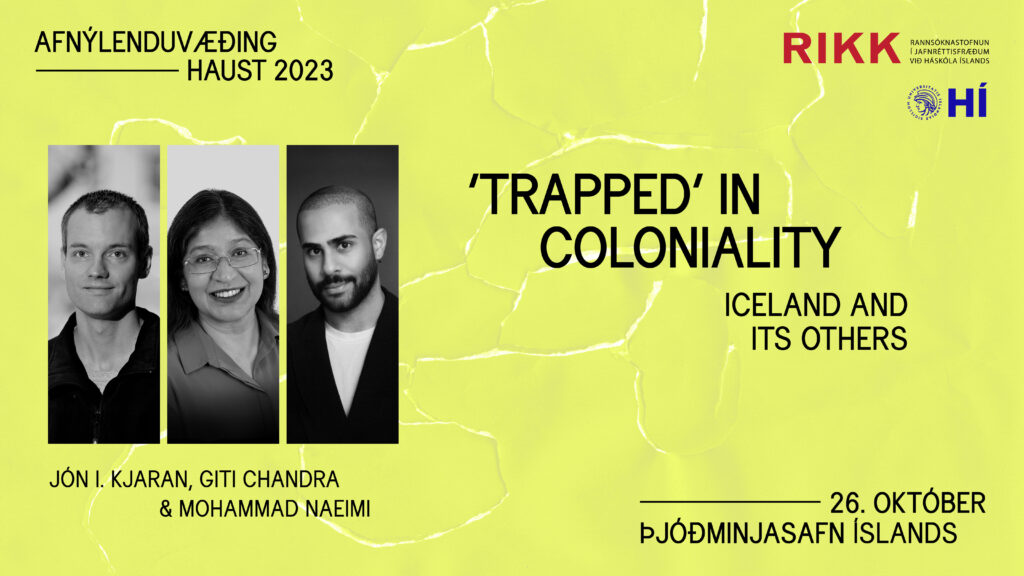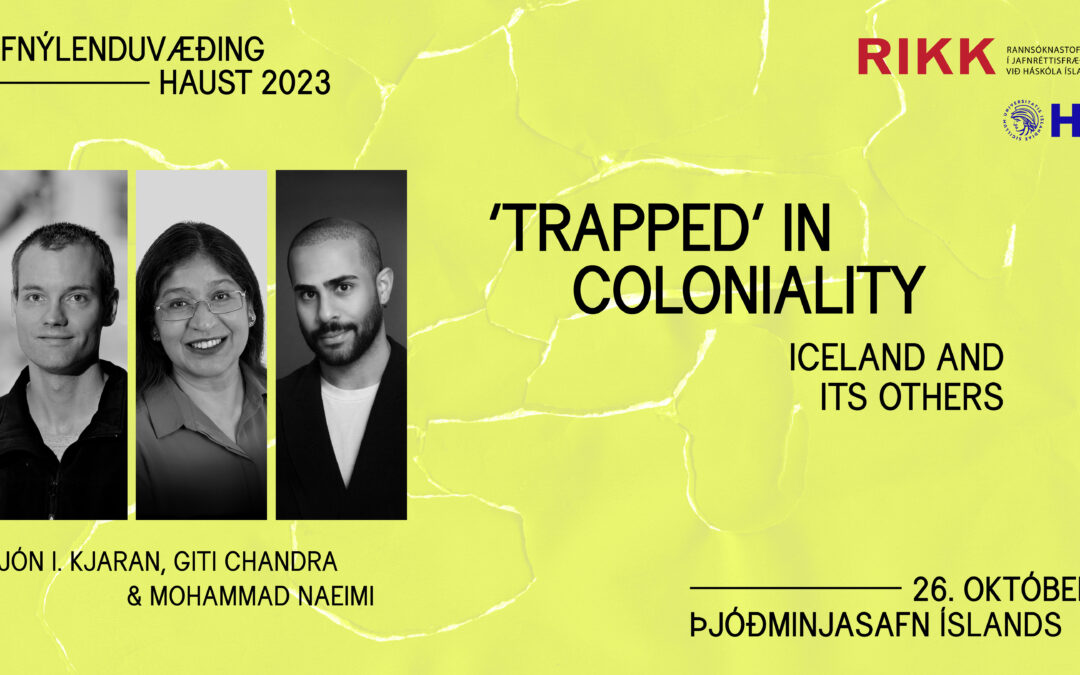
Jón I. Kjaran, Giti Chandra og Mohammad Naeimi flytja fjórða erindið í hádegisfyrirlestraröð RIKK – Rannsóknastofnunar í jafnréttisfræðum á haustmisseri 2023 en röðin er tileinkuð afnýlenduvæðingu líkt og á vormisseri. Fyrirlestur þremenninganna nefnist „‘Trapped’ in Coloniality. Iceland and Its Others“ og verður haldinn kl. 12.00 fimmtudaginn 26. október í fyrirlestrasal Þjóðminjasafns Íslands.
Í erindinu er fjallað um sjónvarpsþáttaröðina Ófærð og rýnt í framsetningu á Afríku og fólki þaðan sem og Íslandi og íslendingum með sérstaka áherslu á samtvinnun eþnísks bakgrunns, kyns og kynhneigðar. Fyrirlesturinn leitast við að skilja vald og hvernig það virkar innan afþreyingarmenningar sem og hvernig það viðheldur og endurframleiðir nýlenduorðræður.
Sjá ágrip á ensku hér fyrir neðan.
Giti Chandra er sérfræðingur hjá Jafnréttisskóla Gró (the Gender Equality Studies and Training Programme) við Háskóla Íslands. Mohammad Naemi er aðjunkt á Menntavísindasviði Háskóla Íslands. Jón Ingvar Kjaran er prófessor á Menntavísindasviði Háskóla Íslands.
Frekari upplýsingar um fyrirlestraröðina má finna á heimasíðu RIKK – rikk.hi.is – og Facebook-síðu stofnunarinnar auk þess sem hægt er að skrá sig á tölvupóstlista RIKK hér. Upptaka af fyrirlestrinum verður gerð aðgengileg á heimasíðu RIKK og Youtube. Fyrirlestraröðin er haldin í samstarfi við Þjóðminjasafn Íslands.
The representations of people of colour in popular culture owe much of their urgency to the discourse of the ‘dark continent’ which draws on the rhetoric of modernity as founded on the historical process of colonisation. As such, Africa and its people are presented as being in need of saving (from themselves and others), and people from the ‘global north’ as their ‘white saviours’. Drawing on decolonial/postcolonial theories, the lecture will analyse how Africa and the people coming from there, as well as Iceland and Icelandic people, are represented in the Icelandic TV series Trapped – focusing specifically on the intersection of ethnic background, gender and sexuality. We will discuss the colonial tropes that shape the non-Icelandic characters in the series as well as the ways as the ways in which the notion of Iceland navigates the structuring of the saviour as white and masculine. Further, we will offer a reading of the implications of locating the terror as outside rather than using the crime fiction genre to reflect on the terror within. Thus, the lecture aims to understand the workings of the power of popular culture and how it sustains and reproduces colonial discourses.
